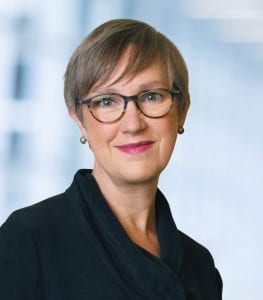 By Professor Judith Squires, Deputy Vice-Chancellor and Provost
By Professor Judith Squires, Deputy Vice-Chancellor and Provost
This week we published our 2021 Gender Pay Gap and Ethnicity Pay Gap Reports. I’d like to highlight some of our progress, and to outline a few of the things that we are doing to build on our commitment to foster a diverse and inclusive community and eliminate the gender and ethnicity pay gaps.
Gender Pay Gap Report
We have seen a modest reduction in our mean organisational gender pay gap for the third year in a row to 18.3% in men’s favour. While this progress is welcome, we remain committed to reducing this further through a range of targeted actions including the continuation of the Women’s Mentoring Network to support academic and Professional Services communities, and the Academic Promotions Framework to reward and recognise the full range of contributions and achievements.
This year’s cohort of 42 new professors has increased the proportion of our female professors to 30.4%. Having exceeded our mid-term University Strategy target of 28% female professors last year by 1%, I’m pleased to report that modelling of our population data suggests we are on track to meet our target of 33% by 2023.
As a result of numerous local and central initiatives our female professor population has increased by 10.5% over five years. This reflects a much longer journey, undertaken by committed colleagues across the institution, to tackle inequalities in the academic career pipeline and to change our cultures and structures to better support women at all stages of their career.
For example, our Women’s Mentoring Network is currently supporting 78 new mid-career mentees from both academic and Professional Services communities; and the Female Leaders Initiative (FLi) supported 30 more women from across all career levels in both academic and Professional Services teams. I’d like to extend my thanks to everyone who has participated in these schemes: I’m delighted that engagement in these has been so strong. I’m confident that they will make a real difference to our institutional culture over time, and support the career development of our female colleagues in the immediate term.
Ethnicity Pay Gap Report
In line with our institutional commitment to anti-racism and as part of our wider commitment to improve the representation of Black, Asian and Minority Ethnic (BAME) people across our workforce, we also monitor our ethnicity pay gap – that is, the difference in average pay between White and BAME staff.
In our second year of reporting this, ahead of it becoming a legal obligation, our ethnicity pay gaps have reduced to 2.9% median and 7.2% mean in favour of staff who disclose as White, compared to 5.7% median and 8.6% mean in 2019. We are also exploring the ‘intersectional’ pay gap between gender and ethnicity for the first time, and with future years’ data we will be able to improve our understanding of how this intersection contributes to gender inequality at our University and to develop targeted action.
Within the professoriate, and based on a 93.8% ethnicity disclosure rate, 8% disclose as being from a Black, Asian and Minority Ethnic background, and 92% identify as White. By gender these figures are 2.4% female and BAME, 5.6% male and BAME, 28.0% female and White, and 64.0% male and White. This confirms that we still have a lot of work to do to improve the BAME representation of staff at a senior level. In the coming year we will explore an appropriate target for BAME population in the professoriate, to complement our female population target in a review of our Strategic Performance Indicators. We look forward to making greater progress in this area.
Elsewhere at Bristol, we have been tackling BAME under-representation by revising our approach to apprenticeships. This includes developing a pipeline of talent from groups traditionally under-represented in professions such as finance, IT and human resources. Currently 75% of trainees across Professional Services are from a Black, Asian or Minority Ethnic background.
The under-representation of Black, Asian and minority ethnic women at senior levels is an issue across the HE sector. To help address this we have launched the Elevate programme in 2021 – the first pilot of its kind – with 30 participants (eight academics and 22 Professional Services staff) across the GW4 universities.
There is much more we can – and will – do towards our goal of closing the gender and ethnicity gaps altogether. I look forward to working with colleagues across the University to continue this important work.

